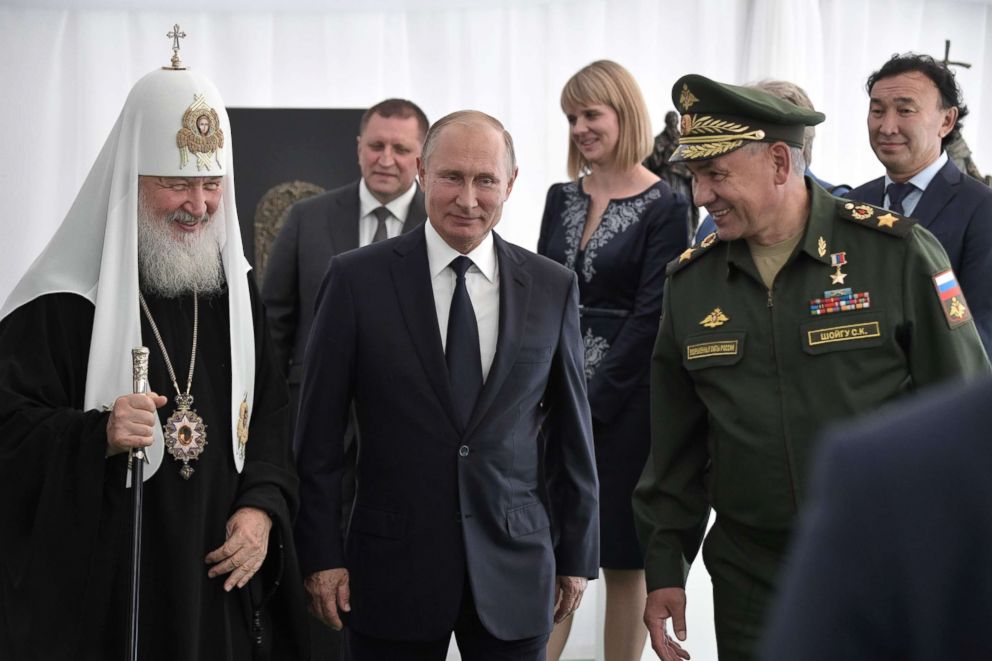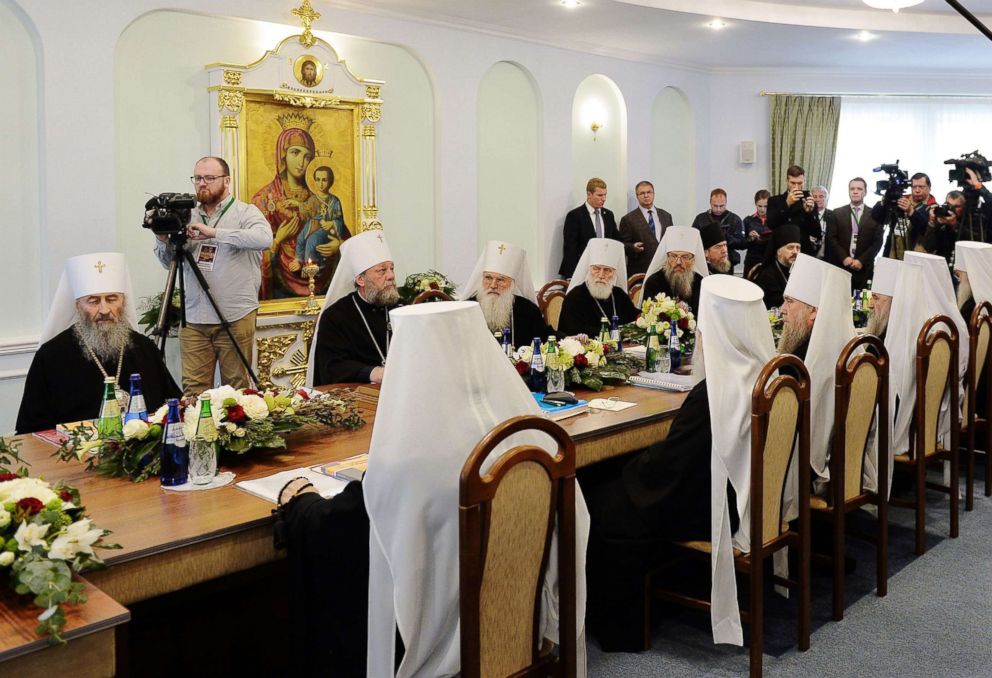Russian Orthodox church splits with Orthodoxy's leader in seismic rift over Ukraine
The split comes after Ukraine's church was recognised independent of Moscow
Moscow -- Russian Orthodox Church leaders have announced that the church is severing relations with the historical seat of Eastern Orthodox Christianity, the Patriarchate of Constantinople, opening a major rift in the global Orthodox Church.
At a synod in Belarus on Monday, Russian Orthodox Church leaders said the church was cutting ties with the Ecumenical Patriarchate of Constantinople, the seat of the global spiritual leader for 300 million Orthodox worshippers.
The rupture is a response by the Russian Church to the Constantinople Patriarchate’s decision last week to allow Ukraine to establish an independent church, one no longer under the authority of the Moscow Patriarchate.
Bartholomew I of Constantinople, considered the "first among equals" of Eastern Orthodox church leaders, agreed to grant autocephaly, or self-governance, to the Ukrainian Church, despite the fierce objections of Moscow.
Metropolitan Ilarion, the Moscow Patriarchate’s head of external relations, on Tuesday said that in doing so the Constantinople Patriarchate had destroyed its authority and that the Orthodox Church no longer had a single center.
"We now stand before a new church reality: We no longer have a single coordinating center in the Orthodox Church and we must very clearly recognize that," Ilarion said in a televised interview on Russia’s main state broadcaster, Channel 1.
"The Constantinople Patriarchate liquidated itself as such a center," he said.

The split marks a historic rupture for the global Orthodox community, the result of a collapse in relations between Russia and Ukraine over the past four years, following Moscow's seizure of Crimea in 2014 and the subsequent, ongoing separatist war in eastern Ukraine.
Ukraine’s government has lobbied for an independent church on the grounds that the Russian Orthodox Church is an instrument of the Kremlin, accusing it of stoking separatist sentiment in eastern Ukraine and of acting on behalf of Russia's intelligence services.
This is a matter of our independence. A matter of our national security. A matter of our statehood. A matter of the entire global geopolitics.
Part of Ukraine's Orthodox clergy has sought to break away from the Moscow Patriarchate since 1991, when Ukraine gained independence from the Soviet Union. The Constantinople Patriarchate's announcement -- which also canceled a canonical decision from 1686 that placed the Kiev Patriarchate under Moscow's jurisdiction -- clears the way for a single independent Ukrainian Orthodox Church. Ukraine’s government hailed the recognition as major step in bringing Ukraine further out of Russian dominion.
"This is a matter of our independence," Ukraine’s president Petro Poroshenko said in a speech celebrating the recognition on October 11. "A matter of our national security. A matter of our statehood. A matter of the entire global geopolitics.”

Poroshenko, who is running for re-election next year while struggling to overcome allegations of corruption and public anger over the war, has seized on the recognition as a much-needed victory, painting it in epic terms.
“This is the fall of the ‘Third Rome’ as the most ancient conceptual claim of Moscow for global domination,” Poroshenko said, referring to a claim made by Russian nationalists for centuries that the country is the heir to the Roman and Byzantine Christian empires.
The Moscow Patriarchate, however, has denounced the Ukrainian church’s recognition as provoking a split comparable to the so-called ‘Great Schism’ of 1054, when Christianity separated into western and eastern churches.
The Russian church, estimated to have over 150 million adherents, is by far the largest of the world’s Orthodox communities and for most of its centuries-long history has been closely tied to the Russian state. President Vladimir Putin has promoted the church as a key part of modern Russian identity and its leader, Patriarch Kirill, is a close ally of the Russian leader.
We now stand before a new church reality: we no longer have a single coordinating center in the Orthodox Church and we must very clearly recognize that. The Constantinople Patriarchate liquidated itself as such a center.
The Russian church's breakaway is therefore a major upheaval for global Orthodoxy. The Russian Orthodox Church has once before broke off relations with Constantinople, in 1996, when Bartholomew recognised the Estonian Orthodox Church as under Constantinople's jurisdiction in place of Moscow's. At the time, church officials said that the rift stopped short of a full schism because the Russian church had only "suspended" ties not cut them off entirely. After a few months the two Patriarchates restored relations.
This time, Ilarion of the Moscow Patriarchate said, the Russian church would "completely sever ties", raising the possibility of a much deeper break. However, the Russian church did not call for the other 12 Orthodox churches around the world to break with Constantinople, which would have meant a full-scale schism.
Ilarion said on Channel 1, that the Moscow Patriarchate hopes "reason will prevail" and the Constantinople patriarch will reverse course. But he said, recent actions didn't appear to suggest that.
The practical implications of the split were still being worked out by ecclesiastical experts on Tuesday, but Russian church officials suggested the most immediate effect would be that its faithful should no longer attend services, or take part in communion, marriages or baptisms at churches under the authority of Constantinople. That would include one of the holiest sites in Orthodoxy, the Greek island monastery, Mount Athos.
Archpriest Igor Yakimchuk, the Moscow Patriarchate’s deputy head of external relations, told the Interfax news agency that Russian worshippers visiting those churches, many of which are popular tourist sites in Greece and Turkey, would have to make penance with confession afterwards, but church officials seemed to suggest there is no total ban. Russian Orthodox priests are now forbidden from taking part in services there and would be punished, Yakimchuk said.
The Moscow Patriarchate and Constantinople have had strained relations for some time as Moscow has sought to expand its authority within Orthodoxy. In 2016, Patriarch Kirill met Pope Francis in Cuba, the first time a Russian Orthodox patriarch and a Roman Catholic Pope have done so in 1,000 years -- in what was seen by some experts as a power play by the Russian church.




